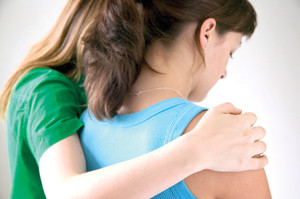Children in care: new standards set
 eolas examines the HIQA’s new guidelines for standards within special care units.
eolas examines the HIQA’s new guidelines for standards within special care units.
One hundred and three vulnerable young people, either in the care of the State or considered to be at risk by social workers, died between late 2010 and the end of 2014. Thirteen children died whilst in care, a further 13 children died during aftercare and 77 of those who died were known to child protection services. The release of these findings, alongside further critical media reports, led the HIQA to update the National Standards for Special Units, which deal with some of the most difficult child protection cases.
Children aged between 11 and 17 years, who exhibit signs of severe behavioural or emotional difficulties, can be detained in one of three special care units based in Dublin, Limerick and Cork.
As of November last year, the vast majority of the 6,452 children in some category of care were in voluntary care. Only 15 were living in a special care facility but these places are reserved for young people who are most at risk of harming themselves or others.
The updated standards for special care units supersede those set down in 2001. The new criteria were developed following a public consultation and have received approval from both Health Minister Leo Varadkar and Children’s Minister James Reilly.
Once implemented, all special care units will be required to register with the HIQA. The new standards are designed to ensure that children are provided with access to social workers, complaints are handled transparently, and that children are present during room searches and are aware of why the searches are taking place.
The standards are based on nine key principles, which include promoting the health, development, education and rights of each individual child; encouraging a child-centred approach to care; providing effective governance arrangements with clear leadership, management and lines of accountability; and delivering consistent services grounded in evidence, best practice and in the interest of the child. These principles are underscored by regulations which aim to ensure high quality and safe residential services for vulnerable children.
HIQA’s Director of Safety and Quality Improvement, Marie Kehoe-O’Sullivan, stated: “These are vulnerable children and these units have an important role to play in promoting and safeguarding the rights of children in their care.” She added: “The overall aim of these care units is to provide focused care in a highly supportive environment, stabilising behaviour so that children are enabled to return to non-secure care within a short period of time.”
Children are detained within special care as a last resort, for the short term and only when there will be a therapeutic benefit. Applications for special care are made by Tusla and, if successful, authorised by High Court special care order.





